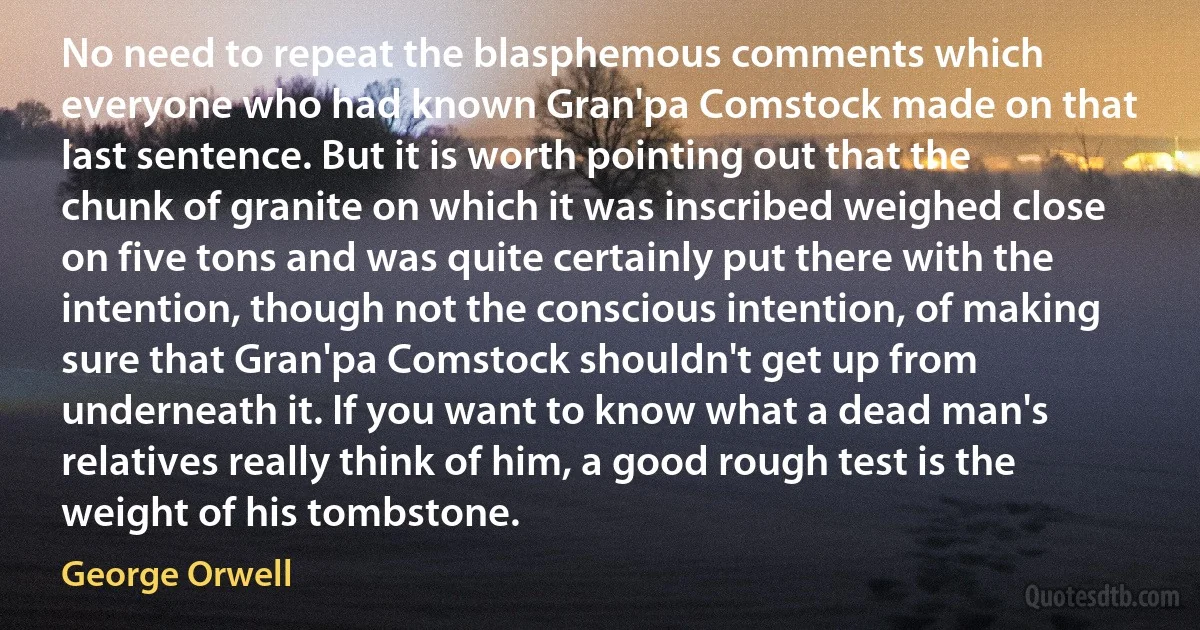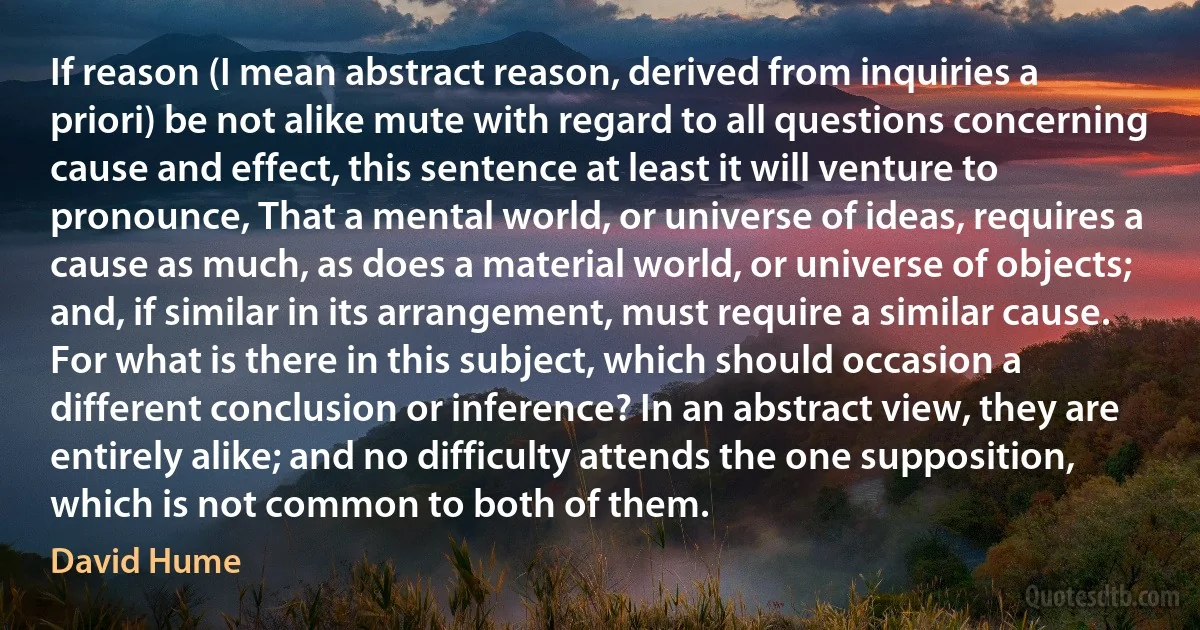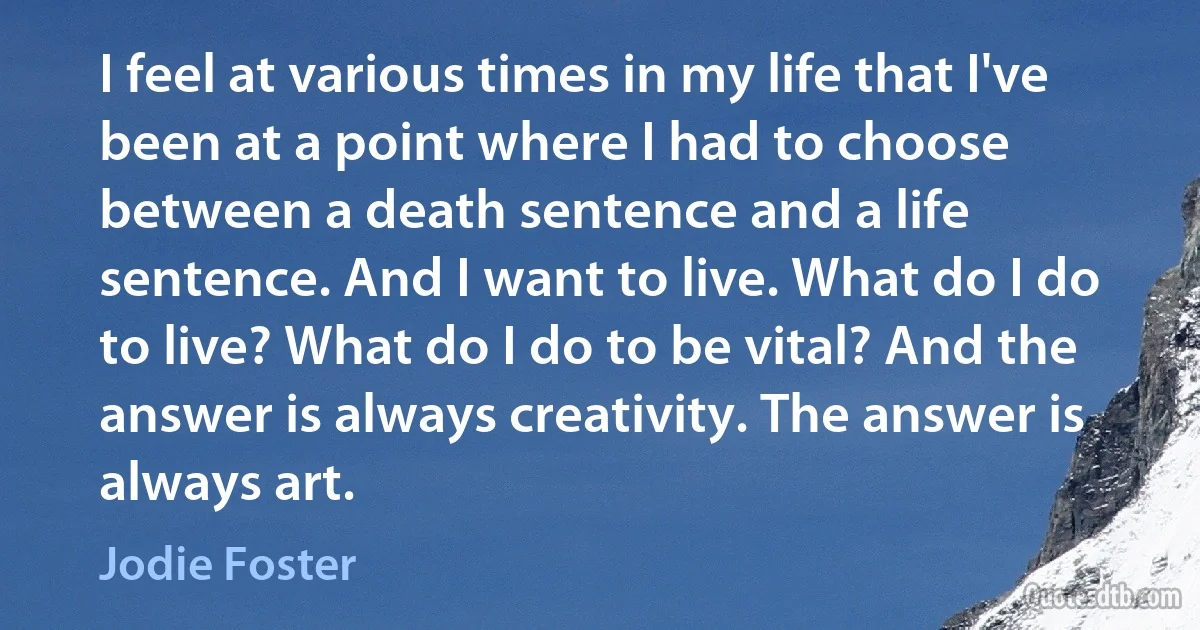Sentence Quotes - page 11
If Congress alters the law and directs me to replace on the coins the sentence in question the direction will be immediately put into effect; but I very earnestly trust that the religious sentiment of the country, the sprit of reverence in this country, will prevent any such action being taken.

Theodore Roosevelt
The example we would do well to keep in front of us is that of the Dalai Lama. He was giving a discourse on a Tibetan text about meditation. He read out a sentence, laughed and remarked, ‘Buddhist theories of creation, a disgrace! Must throw them out!' He advises that we should keep a wastepaper basket nearby – whatever doesn't accord with what we know now, we should cast into that basket. ‘Buddhism must face facts,' that is what he teaches. Accordingly, he has opened Buddhist texts to minute examination. (...) That reflects confidence in one's tradition. That is true service to the tradition. That is the way to preserve for the future ‘the pearl of great price' in it.

Arun Shourie
We completely ignore the human value of the information. A selection of 100 letters is given a certain information value, and we do not investigate whether it makes sense in English, and, if so, whether the meaning of the sentence is of any practical importance. According to our definition, a set of 100 letters selected at random (according to the rules of Table 1.1), a sentence of 100 letters from a newspaper, a piece of Shakespeare or a theorem of Einstein are given exactly the same informational value.

Léon Brillouin
Know you what it is to be a child? It is to be something very different from the man of today. It is to have a spirit yet streaming from the waters of baptism; it is to believe in love, to believe in loveliness, to believe in belief; it is to be so little that the elves can reach to whisper in your ear; it is to turn pumpkins into coaches, and mice into horses, lowness into loftiness, and nothing into everything, for each child has its fairy godmother in its soul; it is to live in a nutshell and to count yourself the king of infinite space; it is
To see a world in a grain of sand,
And a Heaven in a wild flower,
Hold infinity in the palm of your hand,
And eternity in an hour;
it is to know not as yet that you are under sentence of life, nor petition that it be commuted into death.

Francis Thompson
It is my ambition to be, as a private individual, abolished and voided from history, leaving it markless, no refuse save the printed books; I wish I had enough sense to see ahead thirty years ago, and like some of the Elizabethans, not signed them. It is my aim, and every effort bent, that the sum and history of my life, which in the same sentence is my obit and epitaph too, shall be them both: He made the books and he died.

William Faulkner
If, in some cataclysm, all of scientific knowledge were to be destroyed, and only one sentence passed on to the next generation of creatures, what statement would contain the most information in the fewest words? I believe it is the atomic hypothesis (or the atomic fact, or whatever you wish to call it) that all things are made of atoms - little particles that move around in perpetual motion, attracting each other when they are a little distance apart, but repelling upon being squeezed into one another. In that one sentence, you will see, there is an enormous amount of information about the world, if just a little imagination and thinking are applied.

Richard Feynman
Perhaps the best answer is that the writer that I am has been shaped by the stammering kid that I was, and that although my stammer didn't make me write, it did, in part, inform and influence the writer I became. It's true that stammerers can become more adept at sentence construction. Synonyms aren't always neatly interchangeable. Sometimes choosing word B over word A requires you to construct a different sentence to house it-and quickly, too, before your listener smells the stammering rat.

David Mitchell (author)
Under the same circumstances - and the key words are "the same circumstances" - yes, I would do it again. We were in a war for five years. We were fighting an enemy that had a reputation for never surrendering, never accepting defeat. It's really hard to talk about morality and war in the same sentence. In a war, there are so many questionable things done. Where was the morality in the bombing of Coventry, or the bombing of Dresden, or the Bataan Death March, or the Rape of Nanking, or the bombing of Pearl Harbor? I believe that when you're in a war, a nation must have the courage to do what it must to win the war with a minimum loss of lives.

Theodore Van Kirk
Vito Acconci's extraordinary career-poetry, art, architecture: a sort of triathlon of the arts-began in the Bronx, where as an aspiring author of seven years he wrote stories about cowboys and athletes. At his Catholic college, he published sexy stuff about priests and nuns that got the school magazine banned for three issues running. He went on to write fiction in the Iowa Writers' Workshop. But when he came back to New York in the early '60s, something changed, and he began writing poems. Highly conceptual constructions, they did not tell stories, express feelings, or evoke a fictional world. They were not representational. Maybe you could call them presentational: this is a word, this is a sentence, you are reading.

Shelley Jackson
For most of us, the seductive and unstated part of "if I had enough time" is the unstated sentence "to hear myself think." In other words, we imagine that if we had time we would quiet our more shallow selves and listen to a deeper flow of inspiration. Again, this is a myth that lets us off the hook- if I wait for enough time to listen, I don't have to listen now, I don't have to take responsibility for what is trying to bubble up today.

Julia Cameron



